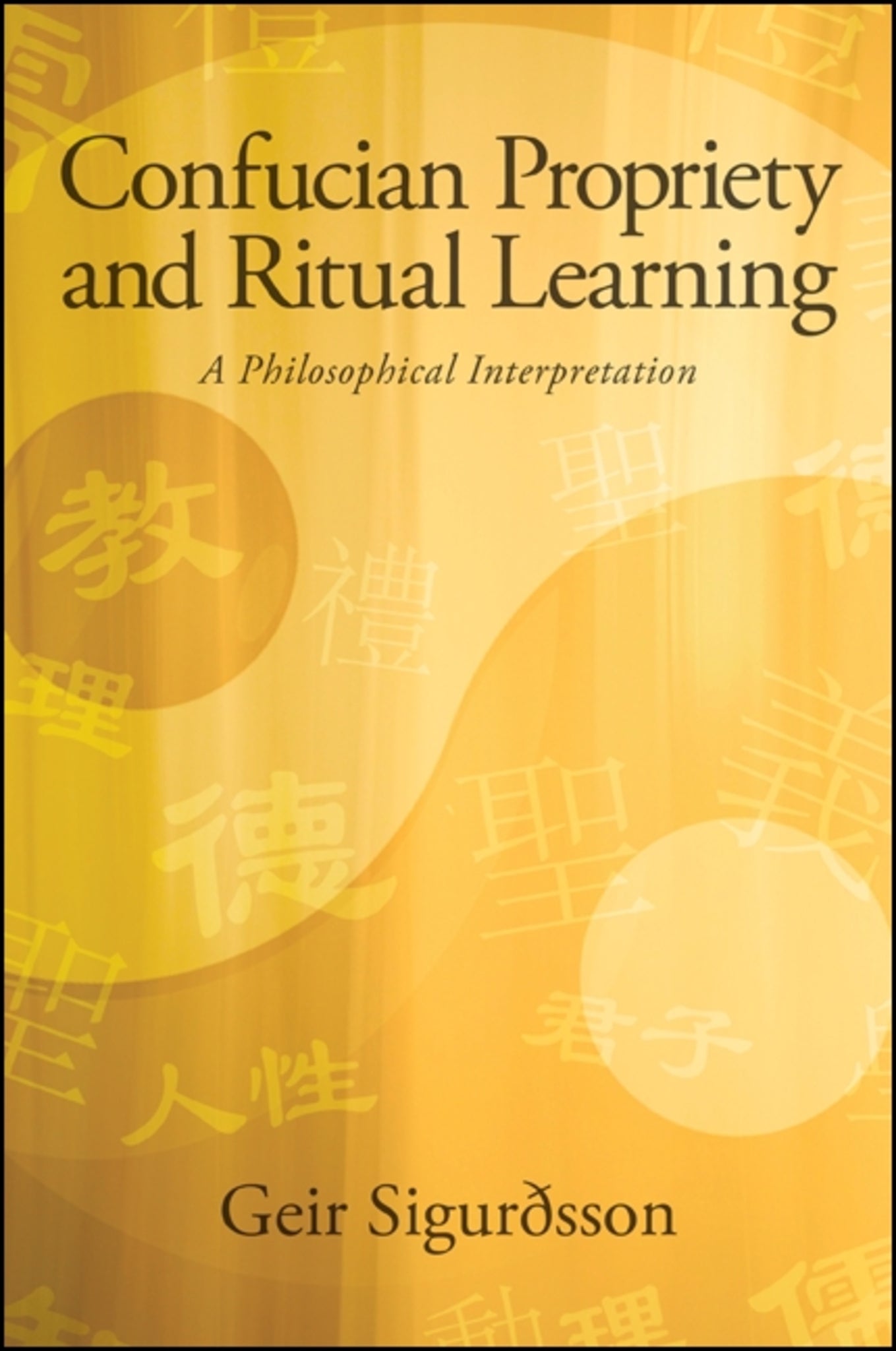We're sorry. An error has occurred
Please cancel or retry.
Confucian Propriety and Ritual Learning

Some error occured while loading the Quick View. Please close the Quick View and try reloading the page.
Couldn't load pickup availability
- Format:
-
01 February 2015

A reconsideration of the Confucian concept li (ritual or ritual propriety), one that references Western philosophers as well as the Chinese context.
Honorable Mention, 2018 Outstanding Book Award presented by the Society of Professors of Education
Geir Sigurðsson offers a reconsideration of li, often translated as "ritual" or "ritual propriety," one of the most controversial concepts in Confucian philosophy. Strong associations with the Zhou period during which Confucius lived have put this concept at odds with modernity's emphasis on progressive rationality and liberation from the yoke of tradition. Sigurðsson notes how the Confucian perspective on learning provides a more balanced understanding of li. He goes on to discuss the limitations of the critique of tradition and of rationality's claim to authority, referencing several Western sources, notably Hans-Georg Gadamer, John Dewey, and Pierre Bourdieu. An exposition of the ancient Chinese worldview of time and continuous change further points to the inevitability of li's adaptable and flexible nature. Sigurðsson argues that Confucius and his immediate followers did not endorse a program of returning to the Zhou tradition, but rather of reviving the spirit of Zhou culture, involving active and personalized participation in tradition's sustention and evolution.


"Confucian Propriety and Ritual Learning is a well-argued and meticulously researched study of classical Confucian notions of ritual, education, and moral self-cultivation … an important contribution that will hopefully introduce many new readers to the works of classical Confucian philosophy and encourage future comparative projects." — Dao
"...I highly recommend this book to those who already have a deep understanding of early Chinese intellectual history and who do not shy away from new methodological approaches to and perspectives on early Confucianism." — Daniel Sungbin Sou, Religious Studies Review
Acknowledgments
Introduction
Interpretive Viewpoints and Prejudgments
Subjective Objectivity and Hermeneutic Productivity of Cultural Distance
Chinese Culture, Ritual Propriety, and the Importance of Learning
The Modern Opprobrium of Ritual and the Confucian Tradition
1. First Assemblage: Tradition and Timeliness
From Aversion to Rehabilitation: The Modern Discourse on Tradition
Tradition as Dao 道: The Early Confucian Approach to Tradition
The Temporal Sequence of Practice and the Chinese Notion of Time
Hitting the Mark: Zhong 中, Shizhong 時中, and Zhongyong 中庸
2. Second Assemblage: From Reason to Intelligence
Education and/or Indoctrination: A Borderless Distinction
Reason I: Max Weber’s Paradox
Reason II: The Quest for Reason in China
Reason III: Reasonable Alternatives
Reason IV: The Interplay of Li 禮, Yi 義, and Li 理
3. Third Assemblage: Education as Humanization
Education through Experience: Reconciling Tradition and Reason
Aesthetic Consciousness and Ritual Knowledge
Internalization and Efficacy: Li 禮, Yue 樂, De 德, and Ren 仁
Education as Exhortation and Personal Cultivation
Concluding Remarks
Notes
Literature Cited
Index



